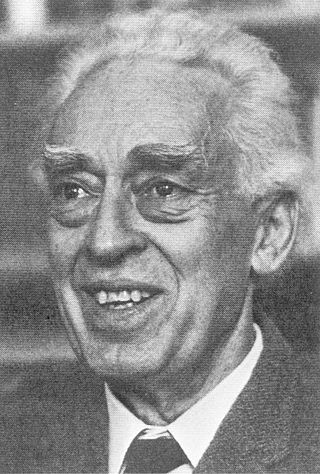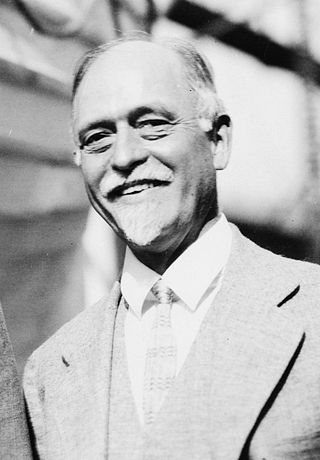The labor theory of value (LTV) is a theory of value that argues that the exchange value of a good or service is determined by the total amount of "socially necessary labor" required to produce it. The contrasting system is typically known as the subjective theory of value.

Microeconomics is a branch of economics that studies the behavior of individuals and firms in making decisions regarding the allocation of scarce resources and the interactions among these individuals and firms. Microeconomics focuses on the study of individual markets, sectors, or industries as opposed to the national economy as a whole, which is studied in macroeconomics.
Neoclassical economics is an approach to economics in which the production, consumption, and valuation (pricing) of goods and services are observed as driven by the supply and demand model. According to this line of thought, the value of a good or service is determined through a hypothetical maximization of utility by income-constrained individuals and of profits by firms facing production costs and employing available information and factors of production. This approach has often been justified by appealing to rational choice theory.
In economics, specifically general equilibrium theory, a perfect market, also known as an atomistic market, is defined by several idealizing conditions, collectively called perfect competition, or atomistic competition. In theoretical models where conditions of perfect competition hold, it has been demonstrated that a market will reach an equilibrium in which the quantity supplied for every product or service, including labor, equals the quantity demanded at the current price. This equilibrium would be a Pareto optimum.

In microeconomics, supply and demand is an economic model of price determination in a market. It postulates that, holding all else equal, in a competitive market, the unit price for a particular good or other traded item such as labor or liquid financial assets, will vary until it settles at a point where the quantity demanded will equal the quantity supplied, resulting in an economic equilibrium for price and quantity transacted. The concept of supply and demand forms the theoretical basis of modern economics.

Piero Sraffa FBA was an influential Italian economist who served as lecturer of economics at the University of Cambridge. His book Production of Commodities by Means of Commodities is taken as founding the neo-Ricardian school of economics.
This aims to be a complete article list of economics topics:
Marginalism is a theory of economics that attempts to explain the discrepancy in the value of goods and services by reference to their secondary, or marginal, utility. It states that the reason why the price of diamonds is higher than that of water, for example, owes to the greater additional satisfaction of the diamonds over the water. Thus, while the water has greater total utility, the diamond has greater marginal utility.
Classical economics, classical political economy, or Smithian economics is a school of thought in political economy that flourished, primarily in Britain, in the late 18th and early-to-mid-19th century. Its main thinkers are held to be Adam Smith, Jean-Baptiste Say, David Ricardo, Thomas Robert Malthus, and John Stuart Mill. These economists produced a theory of market economies as largely self-regulating systems, governed by natural laws of production and exchange.

Irving Fisher was an American economist, statistician, inventor, eugenicist and progressive social campaigner. He was one of the earliest American neoclassical economists, though his later work on debt deflation has been embraced by the post-Keynesian school. Joseph Schumpeter described him as "the greatest economist the United States has ever produced", an assessment later repeated by James Tobin and Milton Friedman.
In economics, economic value is a measure of the benefit provided by a good or service to an economic agent, and value for money represents an assessment of whether financial or other resources are being used effectively in order to secure such benefit. Economic value is generally measured through units of currency, and the interpretation is therefore "what is the maximum amount of money a person is willing and able to pay for a good or service?” Value for money is often expressed in comparative terms, such as "better", or "best value for money", but may also be expressed in absolute terms, such as where a deal does, or does not, offer value for money.

Hyman Philip Minsky was an American economist, a professor of economics at Washington University in St. Louis, and a distinguished scholar at the Levy Economics Institute of Bard College. His research attempted to provide an understanding and explanation of the characteristics of financial crises, which he attributed to swings in a potentially fragile financial system. Minsky is sometimes described as a post-Keynesian economist because, in the Keynesian tradition, he supported some government intervention in financial markets, opposed some of the financial deregulation of the 1980s, stressed the importance of the Federal Reserve as a lender of last resort and argued against the over-accumulation of private debt in the financial markets.

In macroeconomics, a general glut is an excess of supply in relation to demand, specifically, when there is more production in all fields of production in comparison with what resources are available to consume (purchase) said production. This exhibits itself in a general recession or depression, with high and persistent underutilization of resources, notably unemployment and idle factories. The Great Depression is often cited as an archetypal example of a general glut.
Debt deflation is a theory that recessions and depressions are due to the overall level of debt rising in real value because of deflation, causing people to default on their consumer loans and mortgages. Bank assets fall because of the defaults and because the value of their collateral falls, leading to a surge in bank insolvencies, a reduction in lending and by extension, a reduction in spending.

The following outline is provided as an overview of and topical guide to economics:
Throughout modern history, a variety of perspectives on capitalism have evolved based on different schools of thought.
The Cambridge capital controversy, sometimes called "the capital controversy" or "the two Cambridges debate", was a dispute between proponents of two differing theoretical and mathematical positions in economics that started in the 1950s and lasted well into the 1960s. The debate concerned the nature and role of capital goods and a critique of the neoclassical vision of aggregate production and distribution. The name arises from the location of the principals involved in the controversy: the debate was largely between economists such as Joan Robinson and Piero Sraffa at the University of Cambridge in England and economists such as Paul Samuelson and Robert Solow at the Massachusetts Institute of Technology, in Cambridge, Massachusetts, United States.
Exploitation is a concept defined as, in its broadest sense, one agent taking unfair advantage of another agent. When applying this to labour it denotes an unjust social relationship based on an asymmetry of power or unequal exchange of value between workers and their employers. When speaking about exploitation, there is a direct affiliation with consumption in social theory and traditionally this would label exploitation as unfairly taking advantage of another person because of their vulnerable position, giving the exploiter the power.
This glossary of economics is a list of definitions of terms and concepts used in economics, its sub-disciplines, and related fields.

Debunking Economics: The Naked Emperor of the Social Sciences is a book by the economist Steve Keen about the problems with mainstream economics. The book was initially published by Zed Books in 2001, and a revised and updated version was published in 2011. Translated versions were also published in Spanish, French and Chinese. The book is suitable for a general reader, and uses words and figures rather than equations to make its points, but is aimed at those with at least some basic knowledge of economics.







